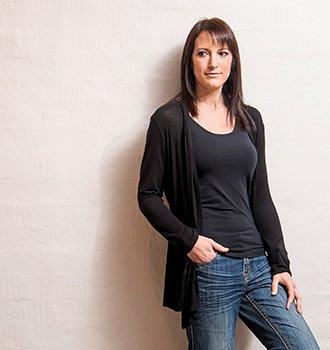Latest News Archive
Please select Category, Year, and then Month to display items
03 October 2018
|
Story UFS
|
Photo Katlego Sekele
 Students engaged authorities and Student Affairs
representatives on sexual and gender-based matters.
Students engaged authorities and Student Affairs
representatives on sexual and gender-based matters.
Do you know enough about the Sexual Harassment, Sexual Misconduct and Sexual Violence policy adopted by the university in June 2018? The Office for Gender and Sexual Equity (GSE) at the University of the Free State (UFS) hosted a dialogue on the role of the institution in matters of sexual and gender-based violence and addressing issues surrounding sexual violations.
Developments such as the countrywide #TotalShutdown: Intersectional Women’s March Against Gender-based Violence last month serve as proof of the dire need for issues surrounding sexual violations to inform policies and active safety measures.
Policy purpose
According to the policy, the objectives are to create a safe and enabling environment, establish a common understanding of what constitutes sexual harassment, sexual misconduct and sexual violence, provide applicable and accurate information, ensure that victims receive the necessary support, clearly outline disciplinary procedures for perpetrators, and clarify institutional accountability.
Student’s take on solutions
Tammy Fray, a member of the Student Representative Council, who formed part of the panel at the discussion, says the policy is not a one-stop-shop solution. “The policy is a guiding document. We have to then use it to inform activist work. We cannot always put the onus on policies and codes of conducts to solve problems. However it is our responsibility within this academic space to come up with solutions that enhance the way the policy works.”
Be informed about the policy
It is important to understand the stipulations of the policy in order to make full use of it. Geraldine Lengau, Officer at the GSE said: “It’s important that students know that the institution is not operating in silos but that their demands have been heard and the institution has acknowledged that there is a need for the policy to be adopted. It also makes the process of reporting better with the assistance of the Sexual Assault Response Team coordinator.”
#Women'sMonth: Lack of HIV education still affects children
2017-08-17

Dr Nickie Goedhals, Senior Lecturer and Pathologist
in Medical Microbiology and Virology at the UFS.
Photo: Sonia Small
“Despite all the advances in the management and prevention of HIV, children still become infected every day, often due to lack of education and access to health care.” This is according to Dr Nickie Goedhals, Senior Lecturer and Pathologist in Medical Microbiology and Virology at the University of the Free State (UFS).
Study published in UK medical Journal
A case study she was part of and published in the UK medical journal The Lancet in 2012, demonstrates the transmission of HIV to a child through surrogate breastfeeding. This study is one of the many highlights in the young researcher’s career. She received her first rating from the National Research Foundation (NRF) in 2017 for the work she has done in Medical Virology over the past eight years.
According to the above-mentioned study, only about 1% of infants in South Africa are being breastfed by a surrogate. However, results from a study in the Free State showed that shared breastfeeding by a non-biological caregiver was the most important factor associated with HIV infection in discordant mother-child pairs. Therefore, continued education about the risk of HIV transmission is needed.
Dr Goedhals is also continuing with research on HIV by looking at HIV drug resistance. She is in the process of starting new projects focusing on HIV infection and drug resistance in infants.
PSP helped with NRF-rating
She says, although her NRF Y2-rating is the starting point of a research career, it shows that she is heading in the right direction, and it “gives access to research funds through the NRF for future projects.” Other important research she conducted was on Crimean-Congo haemorrhagic fever – the study for her PhD.
The Prestige Scholars Programme (PSP) at the UFS is the reason that she applied for the rating. “With all the service delivery, teaching, and administrative responsibilities of academic medicine, it is easy to lose focus. The PSP has really helped to create a focused and stimulating environment for research.” According to her, the PSP also provides access to a network of peers and senior staff at the UFS, as well as exposure to national and international experts.